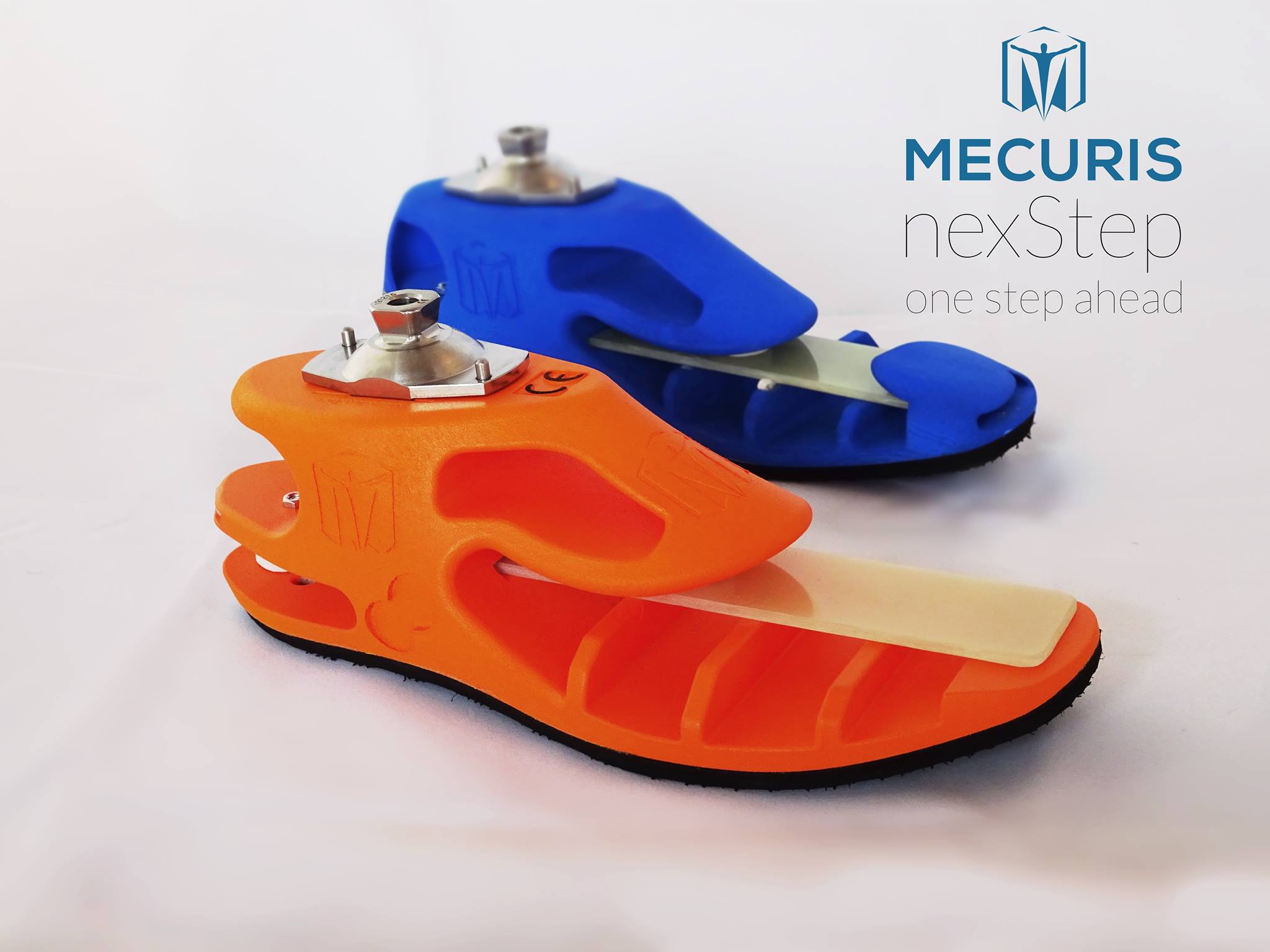German medical technology company Mecuris has been granted CE certification for their 3D printed prosthesis and can now bring the product to market, ending the prototyping phase.
Based in Munich, Mecuris has been refining their 3D printed prosthesis offerings which were recently awarded the Purmundus challenge prize at Formnext. The company offers two variants of prosthesis, the FirStep for children and the NexStep for adults. Both are custom fitted to the patient’s needs using 3D printing technology. Mercuris is able to create a prosthetic using CT scans, MRI imagery or 3D scans.

Conformité Européenne
The CE symbol stands for Conformité Européenne, which translates as ‘European conformity’. The marking is a declaration that the product complies with EU regulations and testing.
In this case, the CE symbol on the NexStep and FirStep means the prosthesis has undergone stringent performance testing. Carolin Taubmann, Quality Management & Simulation at Mecuris, explains the certification process also involved ISO testing, “which included a mechanical long-term durability test.” Similarly, the International Organization for Standardization (ISO) recently approved Belgian company Luxexcel’s 3D printed optical lenses.

First step for certification
To gain approval, the NexStep “endured a maximum load of up to 8.000 N” which, according to Taubmann, corresponds “to a patient using our feet for more than 3 years and afterwards jumping down several steps resulting in a high impact.”
This certification is an important milestone for Mecuris as it now means they can commercialize these two products. According to the company it has done just that by shipping the first prosthetic to a medical professional in Eastern Europe to be fitted to a young double-amputee.
Materialise is another company active in this segment. The Belgian company was recently granted FDA approval for surgical guides. While British group Open Bionics won a $1 million prize in Dubai for their 3D printed arm prosthesis. Open Bionics plan to use the money to advance certification.

Mecuris’s Next step
CEO of Mecuris, Manuel Opitz, is delighted with the certification and states that,“We are the first – and only manufacturer – worldwide to have achieved CE-certification of a 3D-printed prosthetic foot.”
Opitz also believes the company has set a record for achieving the feat in just four months. Having acquired CE certification, Mecuris will now seek approval for a waterproof variant of the prosthesis. While in the meantime with the NexStep and FirStep, the company aims to be able to begin shipping the prosthesis within 48 hours of receiving CAD files.
Don’t forget to vote in the 3D Printing Industry Awards, Mecuris is one of the companies nominated in the ‘start-up of the year’ category.
For the latest 3D printing news, sign up to our newsletter and follow us on twitter and Facebook.
Featured image shows a close-up of the CE marking on the Mecuris prosthetic. Photo via Mecuris.



